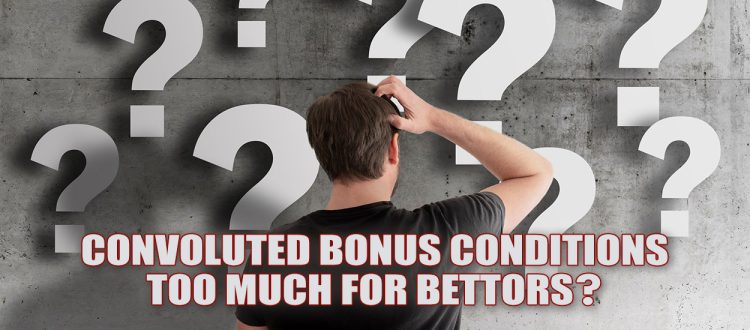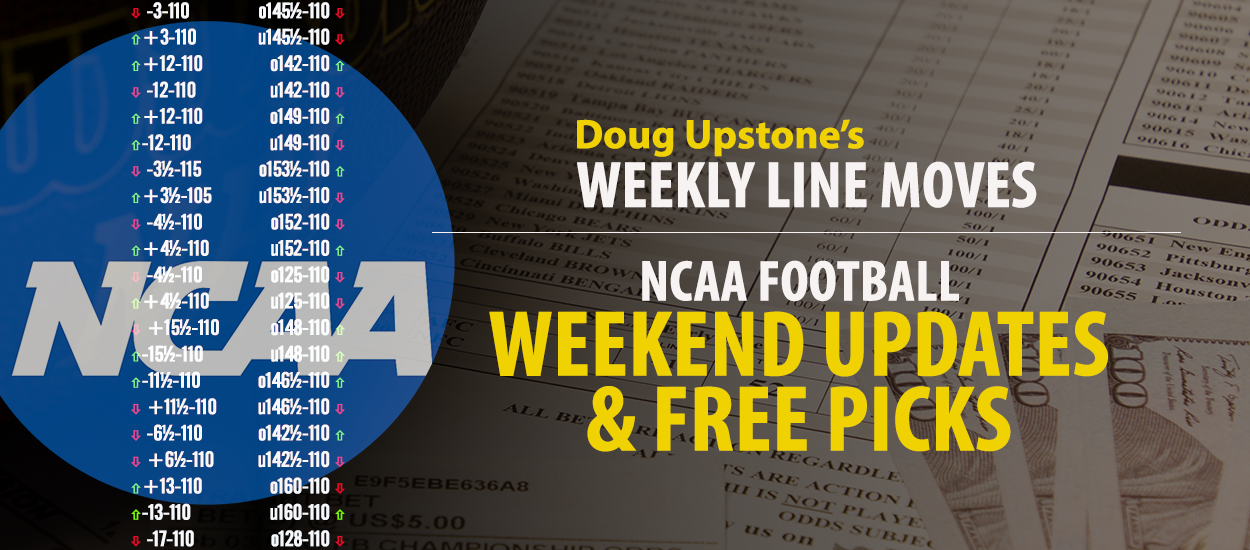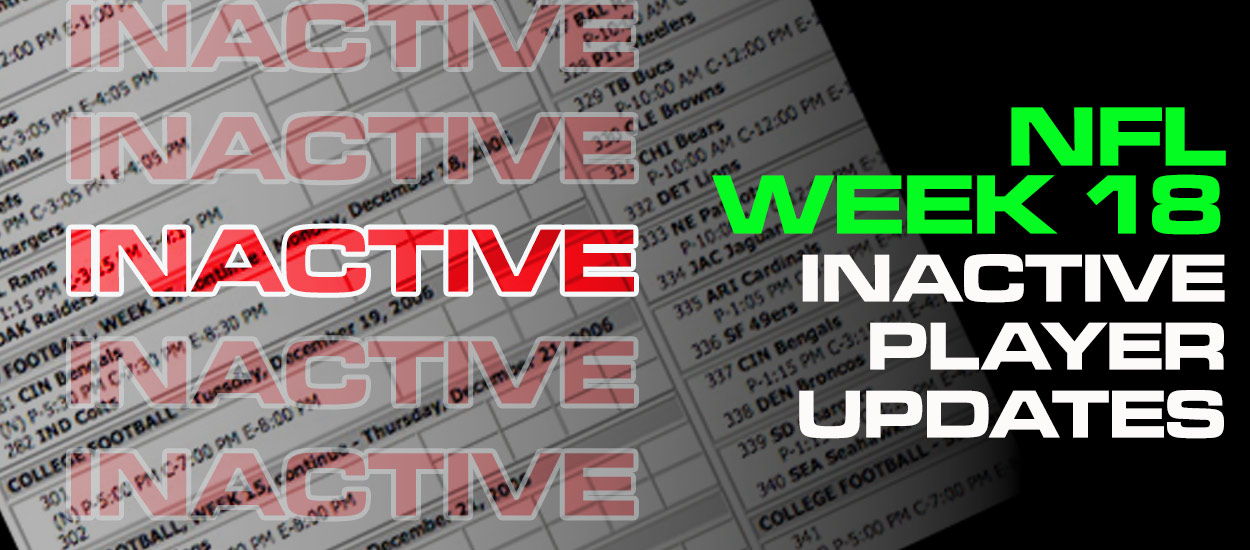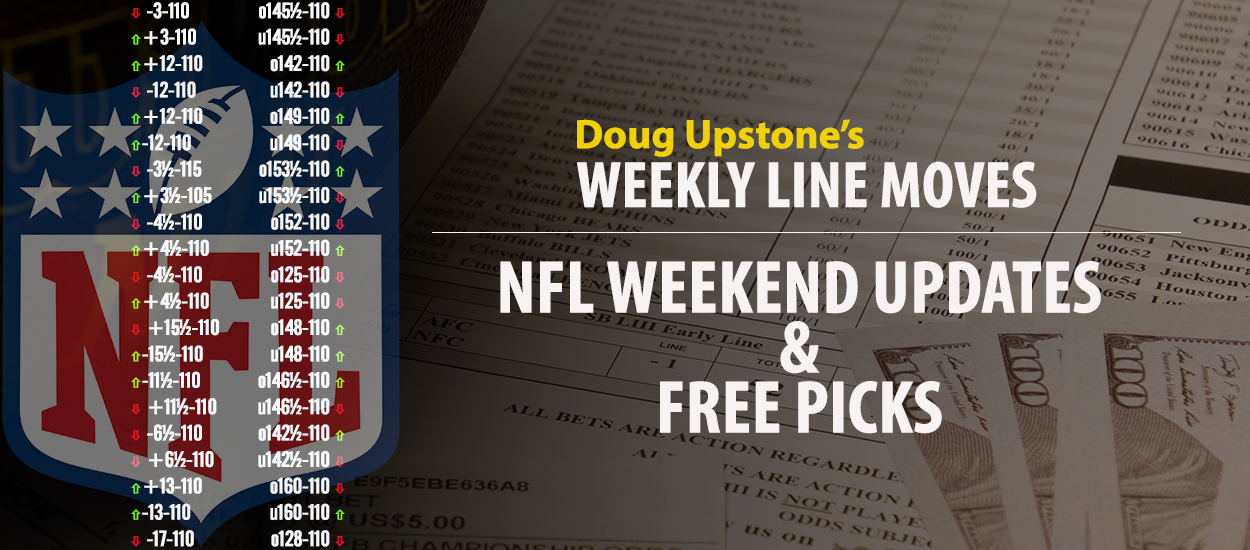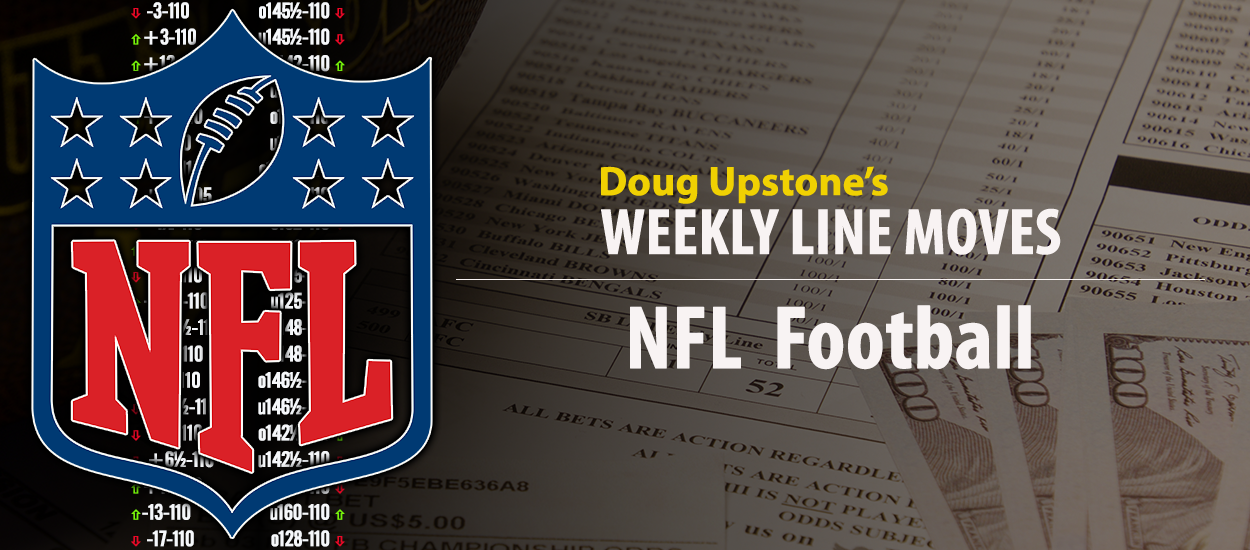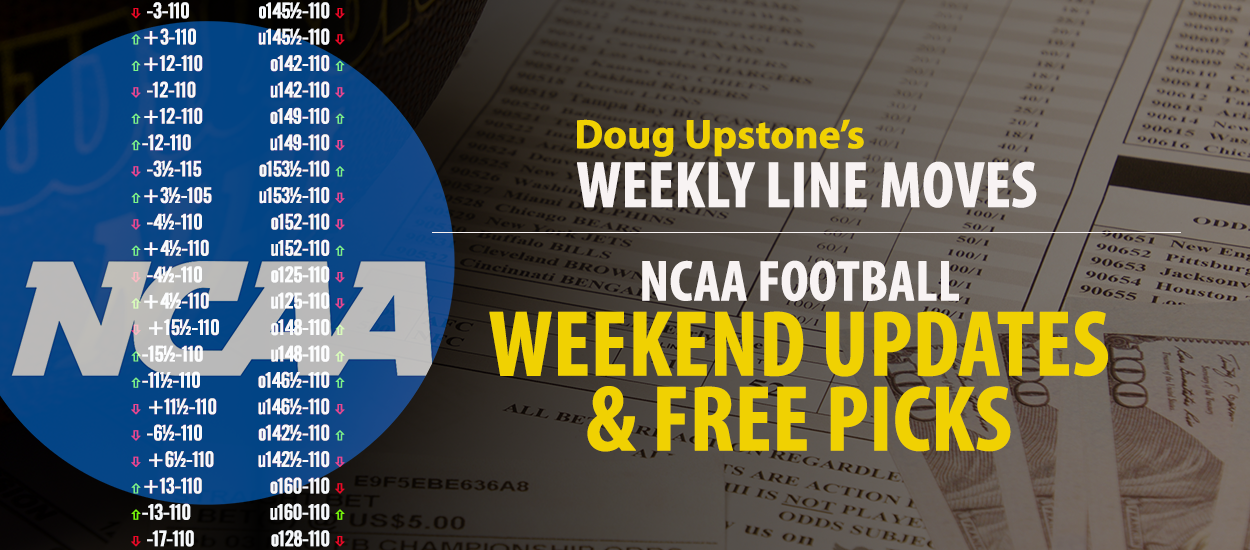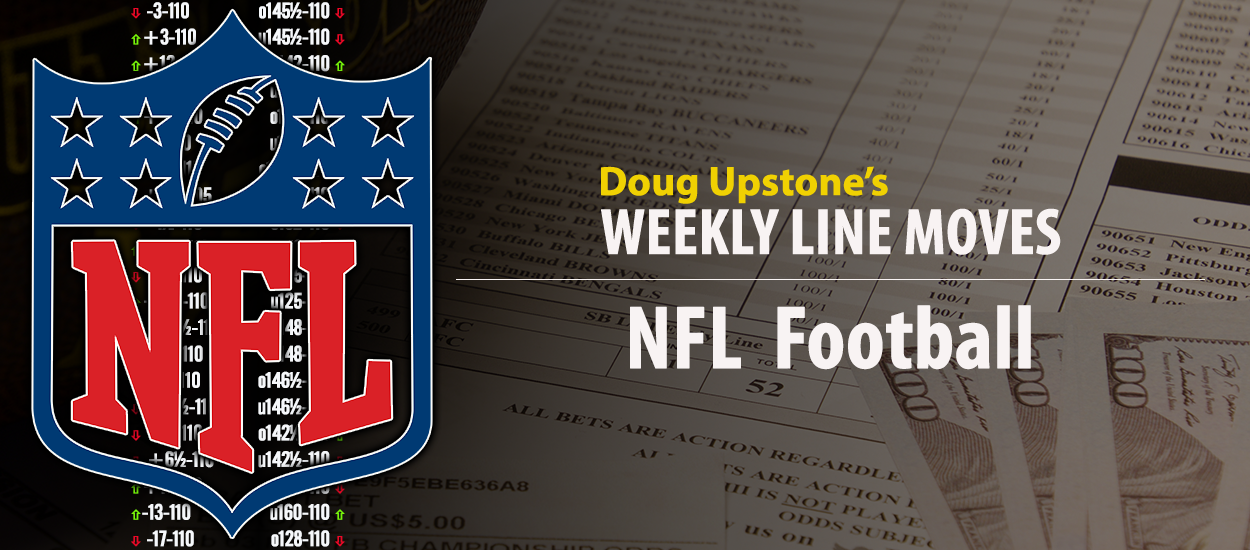Every sportsbook offers bonuses and incentives, but are they really a good deal for bettors?
Sportsbooks are always looking for a way to attract new customers and to keep their current customers happy and they generally achieve this through bonuses and incentives. Every sportsbook generally offers the same types of bonuses, but the terms and conditions for utilizing the bonus are often quite different. I assumed that the wagering requirements would change from state-to-state depending on the tax rate being charged to the book, but it appears that each company has the same bonus offers and conditions regardless if they are in New York or Illinois. While that is good, many bettors still have questions, concerns and comments regarding bonuses and often I get emails from gamblers questioning whether a bonus was applied to them was applied correctly.
I’ll answer when I can, although at times, I’ll reach out to the sportsbook to ask them about their rules. Most of the time I’ll be assured the bonus was handled correctly and if I question the reasoning I’ll be told “it’s a business decision.” In better words the book is saying “we have the right to set the terms of our bonuses without being questioned about it” which is fair. But whether it’s a business decision or not, some of these rules and offers are worth discussing. So, the following are the 5 most common bonus types and the concerns that may arise from each.
Rollover requirements on sign-up bonuses and risk free first wagers
The first online sportsbook to offer a bonus was Rich’s International Superbook in the late 1990s. The company offered 10% back on any deposit with no restrictions. It was also ongoing so that the deposit bonus was on any deposit whether it was a first deposit or 10th deposit. That turned out to be the start of the end for the company which eventually shut down and left many customers hanging. Bettors would often deposit the maximum $1,000 and get a $100 bonus. They would then bet the $100 and if it won, they would take their full balance back as a withdrawal. If they lost, they would take back the $1,000 they deposited and then redeposit it for another $100 bonus. So, these “gamblers” weren’t really risking anything at all and were just looking for an easy way to get unlimited no-risk $100 bets. The practice led to the phrase “bonus whores” which described any gambler who took advantage of bonus schemes to get free money without really gambling at all.
 Not long after, other offshore books started offering bonuses as well, but put in rollover or play-through requirements, requiring a bettor to risk real money before they could get the bonus and cash out. The rollover required the bettor to wager the bonus (and often the deposit amount too), a certain multiple of times to make the money withdrawable. The most common rollover requirement was 10 times post up and bonus, which on paper isn’t bad. But, since even the best bettors only win about 55% of their bets, it was hardly a windfall. Most of the time, by the time a bettor rolled over the deposit and bonus the required number of times, they lost everything in the account or they had far less than the deposit amount left ensuring a profit for the sportsbooks.
Not long after, other offshore books started offering bonuses as well, but put in rollover or play-through requirements, requiring a bettor to risk real money before they could get the bonus and cash out. The rollover required the bettor to wager the bonus (and often the deposit amount too), a certain multiple of times to make the money withdrawable. The most common rollover requirement was 10 times post up and bonus, which on paper isn’t bad. But, since even the best bettors only win about 55% of their bets, it was hardly a windfall. Most of the time, by the time a bettor rolled over the deposit and bonus the required number of times, they lost everything in the account or they had far less than the deposit amount left ensuring a profit for the sportsbooks.
When SCOTUS overturned PASPA in the U.S., every sportsbook started offering bonuses with rollover requirements. DraftKings had a 20% bonus for any deposit up to $2,000, but had a 25x rollover requirement, which still exists and it caused a lot of anger by bettors who said that was excessive. Consequently, other sportsbooks decided not to offer sign up bonuses but had other enticements with fewer restrictions. The first of these was FanDuel, which has a rule that for any bonus they offer – the bettor only needs to play it through one time to make it withdrawable. BetMGM followed suit and Caesars also has a 1x rollover requirement, but uses any cash in the account first before the bonus money kicks in. 888, which operates in New Jersey and Ontario requires a 6x rollover for new customers, but like Caesars uses cash first. So effectively the bonus isn’t usable until you have a negative balance and if you win from the bonus money it becomes cash again, so it’s nearly impossible to use the bonus money before the time period to use it expires unless you lose everything. One gambler told me this is the worst promotion they have ever witnessed in his 20 plus years gambling online. Other companies like Bet365 just offer a huge bonus for a small deposit with a 3x playthrough, which bettors say is the best out there. That said, books like DraftKings that have high rollover requirements also have very high bonuses. A new customer at DraftKings for example can get a $2,000 bonus for $10,000 deposit with a playthrough requirement of $50,000, which is high, but may not be a big deal to a larger bettor. For recreational bettors it’s hardly ideal.
So, when it comes to rollover requirements, if one doesn’t want to play it over multiple times then they should look for bets with a 1x playthrough, but realize that the amount of the bonus will be less than those at books that have a higher rollover requirement. Regardless, bettors need to be wary of sports books who use cash in the account first, before utilizing the bonus money, because they could find that the bonus money is never actually usable.
Bet Boosts
Bet boosts are actually a fairly new phenomenon that only took fruition when legal sports betting came to North America. There are two types of boosts. The first and most common type of bet boost is a bet where a book creates a line that is better than would be available if a player just took the line at the regular odds. For example, the true line for the San Francisco 49ers to win and Christian McCaffrey to score a TD was 4/5 odds for the game against Green Bay, but FanDuel offered 7/5 odds as a bet enticement. It received a lot of action and the players won. The maximum on the bet was $20. Other books like Bet365 will even offer super boosts whereby a bet on McCaffrey to score a TD is offered for even money when his true odds are 7/20. Again, this was limited to $20. This is essentially a giveaway by the books as an incentive, realizing most bettors will lose that $20 back elsewhere and it’s far too small an amount to want to withdraw. Plus, on occasions these boosts will lose. 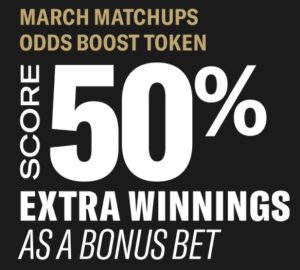 But a caveat is that sometimes what appears to be a boost or that a book will say is a boost isn’t. FanDuel, for example, will offer a featured Same Game Parlay (SGP) that appears to be a bet boost based on the way it is advertised on the site, but in reality, offers lower odds than if the options in the SGP were multiplied separately.
But a caveat is that sometimes what appears to be a boost or that a book will say is a boost isn’t. FanDuel, for example, will offer a featured Same Game Parlay (SGP) that appears to be a bet boost based on the way it is advertised on the site, but in reality, offers lower odds than if the options in the SGP were multiplied separately.
Aside from the standard bet boosts preset by the books, some sportsbooks also offer the ability to boost a bet by a set amount. For example, BetMGM often has a 33% bet boost limited to straight wagers or parlays on certain sports. DraftKings tends to have these offers as well and Bet365 provides a 30% bet boost on a given sport each day. But there are catches. The BetMGM bet boost is limited to $5 on straight bets or parlays only, and DraftKings is only for NBA basketball and limits the bet to $10. Bet365 only allows the 30% bet boost on a 3 game SGP with odds of even money or better. Since the SGP already has a large built-in advantage for the sportsbook, it’s really not a big incentive.
So, the bet boosts are generally a pretty good incentive, but no one is going to get rich off of them due to the very low limits. Plus, bettors need to be careful since some preset bet boosts may be available at better odds at a different book. As an example, the odds on first touchdown scorer at FanDuel are generally far lower than BetMGM or DraftKings, so a “boost” on Josh Allen to score the first touchdown at Bet365 may still be lower than the non-boosted odds than available at BetMGM or DraftKings. That happened in last weekend’s Buffalo vs. K.C. game.
No-Risk SGP and Parlay Insurance
These bets seem to be available at every regulated sportsbook in North America and are driving some bettors crazy. As mentioned, a Same Game Parlay has a hold of almost 30% built in for a 3-teamer and can be over 50% as you add more selections. So, they are not great bets to begin with, but no doubt readers will say “what’s the concern if they are “risk free”? The answer is that they aren’t really risk free.
If your bet loses you will be given the amount you wagered back as a bet credit, meaning that you lose the stake on any bet you use the credit for and often the credit is limited to bets like money lines or spreads only, which hold little risk to the book. To make matters worse, the limits for these “no risk bets” is $5 at places like FanDuel and BetMGM and $10 at Caesars. Most bettors agree that it’s hardly an incentive at all. And it’s not just bettors who feel this way.
 In Massachusetts, a Senator introduced a bill to ban “risk free bets” from being advertised because he called it deceptive advertising. He noted that there was nothing risk-free about a bet where you only get a bet credit in return and it appears the bill may pass, although sportsbooks are challenging the state on it, saying it’s a first amendment issue. The Senator also wanted to ban advertising for any same game parlays and bet boosts because again he claimed it was telling bettors they had an advantage over the sports books when they don’t. It is notable that Ontario bans any promotions in advertising, except in direct advertising to a client who opts in to receive the advertising, as well as any promotions listed on the company’s website. Other U.S. states are also looking at these promotions and are considering introducing rules that prohibits sportsbooks from offering any bet where it appears the gambler has the advantage, when in fact the book has the advantage.
In Massachusetts, a Senator introduced a bill to ban “risk free bets” from being advertised because he called it deceptive advertising. He noted that there was nothing risk-free about a bet where you only get a bet credit in return and it appears the bill may pass, although sportsbooks are challenging the state on it, saying it’s a first amendment issue. The Senator also wanted to ban advertising for any same game parlays and bet boosts because again he claimed it was telling bettors they had an advantage over the sports books when they don’t. It is notable that Ontario bans any promotions in advertising, except in direct advertising to a client who opts in to receive the advertising, as well as any promotions listed on the company’s website. Other U.S. states are also looking at these promotions and are considering introducing rules that prohibits sportsbooks from offering any bet where it appears the gambler has the advantage, when in fact the book has the advantage.
Parlay insurance is slightly different than risk free bets since it provides a refund to a player that loses exactly one leg in a parlay. And best of all, the bet is refunded as cash and not a bet credit. Sounds great right? Not really. The insurance is only for 5 team parlays or more and the house edge on a 5-team parlay is 34.38% and on a 4 team parlay it’s 31.25%. So, most of the time at least two bets inside a 5-team parlay will lose, meaning the book is safe. And to protect themselves books usually require each leg of the parlay to have odds of at least -200 (1 to 2 odds) so bettors can’t use guaranteed winners as the first four bets to make the insurance kick in if the last non-certain bet loses.
So, for risk free bets, the bettor just needs to realize they are not really risk free and the limits will usually be very low. And for parlay insurance everyone needs to understand the house always has a big edge and the bettor will most likely lose in the end.
Referral bonuses
Bonuses for players who refer friends and relatives has been around for many years as fixed rates or a percentage of the referred player’s deposit. Now, many books have these bonuses limited to about $100 per referral, although it varies by book and by location. The bonus is most often given to both the person doing the referral and the person who is signing up, although a couple of books like BetRivers only give the bonus to the person making the referral. And a lot of books have chosen not to offer any referral bonuses.  Books will often limit the number of referrals a customer can make, although if they have enough friends, it could be quite lucrative. Almost all the time the bonuses are restricted by the general bonus requirements meaning that for FanDuel and Bet365 the referral bonus only needs to be played through once, but other bets could require a rollover of up to 25 times the bonus.
Books will often limit the number of referrals a customer can make, although if they have enough friends, it could be quite lucrative. Almost all the time the bonuses are restricted by the general bonus requirements meaning that for FanDuel and Bet365 the referral bonus only needs to be played through once, but other bets could require a rollover of up to 25 times the bonus.
These are obviously enticing for both parties, since many times a person has a friend that is going to sign up anyway, so there is a huge incentive to use the referral. It is important to note that some books will not allow a double bonus, meaning that if a new customer uses a referral link, they will get the referral bonus but not the signup bonus. Other sportsbooks, like BetMGM, allow both. And FanDuel does not offer a referral bonus.
So why do books offer these? Simple, it’s cheaper than alternative methods of attracting new customers. A chart that was presented at a gambling conference last year showing the cost of acquisition demonstrated that BetMGM was willing to spend over $500 to get a new customer, FanDuel spent $450 and DraftKings spent just over $400. That is huge number and included everything, including promotions and advertising which is usually one of the biggest line items on the income statement. So, if a company can increase signups from referrals, then they can cut back on advertising and promotions, which in the end is a benefit to the sportsbook.
Move the Line and loyalty bonuses
Move the line is a very recent phenomenon and is offered almost exclusively by FanDuel and DraftKings. The company will pick a game that is important to the local market and will then move the line a half point for every bet that is placed on the “home team”. So, for example, in the Toronto and Western New York market DraftKings had a move the line option for the Buffalo Bills to win the game over the Pittsburgh Steelers in the first week of the NFL playoffs. The line started with Buffalo at -9.5 points and finished with Buffalo +113 points. Thus, whenever anyone bet the line they received Buffalo +113 points. Needless to say, it is a clever way to hand out free money as an incentive to keep customers happy. And in both the cases of FanDuel and Draft Kings there is no playthrough required.
What neither FanDuel nor DraftKings offers, however, that books like Bet365, 888, and BetMGM do is loyalty bonuses. At the end of each week customers will be given free money (either as cash or credits) in exchange for wagering a sufficient amount during the week. Those bonuses are unsolicited incentives that books should be congratulated for.
Other Offers
Of course, not every offer is a bonus and many of the promos are far better than the bonuses. One example is Bet365 which has a promotion on their site that says if an NFL or NCAA football team ever takes a lead of 17 points then any money line bet on that team is automatically paid as a winner. Similarly, any soccer team that goes up by 2 goals is a winner, any NCAA basketball team leading by 18 points is a winner, any NBA team leads by 20 points is graded a winner, any NHL team that leads by 3 goals is a winner and any MLB team that leads by 5 runs is a winner on the moneyline. These scenarios happen all the time, especially in baseball and hockey, and are a big incentive for the bettors. And Bet365 applies it to parlays and same game parlays. So, a moneyline bet as one of the legs will be graded a winner if the team leads by the set amount.
d then there are books like Pinnacle that offer no real incentives other than great lines. NFL and NBA spreads at Pinnacle use a 10-cent line rather than the customary 20 cent line as do MLB and NHL moneylines. Pinnacle, which has been around for decades, has always based their marketing on the fact that they don’t have a ton of incentives like other books but the reduced vigorish will always be the biggest benefit for bettors in the end. The fact they have such a large customer base, including many professionals, proves they were right. Pinnacle is currently in Ontario and has by all accounts applied for state licenses. And a lot of offshore books besides Pinnacle also have the same philosophy, which is one reason why so many North American bettors have kept their offshore accounts.
So, bonuses and incentives are often a huge enticement to join and stay at a sportsbook, but bettors need to look at the fine print and realize they are not all the same and not all of them are actually beneficial to the bettor.
Read more on the North American gambling industry from Hartley Henderson here at GamblersWORLD.

